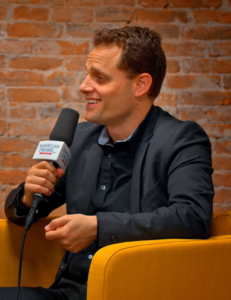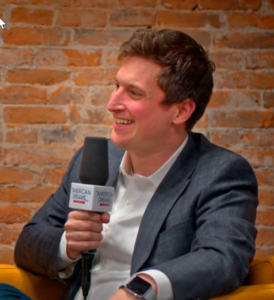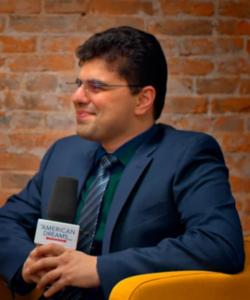Seven Habits of Likeable Leaders

Seven Habits of Likeable Leaders
What kind of leader are you? Your company is doing well and so are the teams and other executives that report to you. So of course, you’re a good leader. You know how to get things done and you do it. However, are you a likable leader? The business world is full of bosses and so-called leaders that no one likes. Some leaders might not really care if people like them, thinking that likability doesn’t really matter in the long run. However, the more people dislike you, the less likely they are to stick around for the long haul. That could be costly as you might lose valuable people before they achieve their full potential. So with that in mind, what common habits do likable leaders tend to share?
Humble
No one enjoys being around someone who is arrogant. Even if a leader is extremely successful, he or she doesn’t have to flaunt it. By being humble, a likeable leader allows others to feel like they are equals instead of inferiors.
Affable
Some leaders are not very approachable. You know the kind of person we’re talking about. They are either never around to approach or they always make you feel like they would rather not hear from you when they are around. Likeable leaders make everyone feel valuable, and they allow you to approach them with your ideas, questions, and problems.
Personal Connection
Have you ever been to the doctor and felt like if he or she didn’t have a chart in front of them, they would have no clue that you even existed? There are some leaders that can make others feel the same way. A likeable leader, on the other hand, makes people feel important because they are important. They care enough to listen and give their time to those they work with, and they believe in cultivating personal connections.
Optimistic
Have you ever been to the doctor and felt like if he or she didn’t have a chart in front of them, they would have no clue that you even existed? There are some leaders that can make others feel the same way. A likeable leader, on the other hand, makes people feel important because they are important. They care enough to listen and give their time to those they work with, and they believe in cultivating Optimistics.
Generous
Being generous does not mean giving away your money, or even handing out plush raises regularly, although that would definitely be generous. However, it really means that a leader is willing to share his or her knowledge and experience freely, without worrying about whether or not someone might use it to gain personal victories or advantages. They are generous with what they know because they want to see you succeed as well.
Calm
A likeable leader usually does not have a hot-tempered personality. In fact, most likeable leaders are very even-keeled. They don’t let the heat of the moment get to them, but instead they stay under control. Whether things are sailing smoothly or in an all-out crisis mode, successful leaders know how to stay composed and work through the situation.
Integrity
Lastly, like any good leader, a likable leader has integrity. This is a trait that can’t be faked. Likable leaders demonstrate integrity in all that they do, both at work and in their personal life, as well as in their actions and words.
We hope you found this article about “Seven Habits of Likeable Leaders” helpful. If you have questions or need expert tax or family office advice that’s refreshingly objective (we never sell investments), please contact us or visit our Family office page or our website at www.GROCO.com. Unfortunately, we no longer give advice to other tax professionals gratis.
To receive our free newsletter, contact us here.
Subscribe to our YouTube Channel for more updates.

Alan Olsen, is the Host of the American Dreams Show and the Managing Partner of GROCO.com. GROCO is a premier family office and tax advisory firm located in the San Francisco Bay area serving clients all over the world.
Alan L. Olsen, CPA, Wikipedia Bio

GROCO.com is a proud sponsor of The American Dreams Show.

The American Dreams show was the brainchild of Alan Olsen, CPA, MBA. It was originally created to fill a specific need; often inexperienced entrepreneurs lacked basic information about raising capital and how to successfully start a business.
Alan sincerely wanted to respond to the many requests from aspiring entrepreneurs asking for the information and introductions they needed. But he had to find a way to help in which his venture capital clients and friends would not mind.
The American Dreams show became the solution, first as a radio show and now with YouTube videos as well. Always respectful of interview guest’s time, he’s able to give access to individuals information and inspiration previously inaccessible to the first-time entrepreneurs who need it most.
They can listen to venture capitalists and successful business people explain first-hand, how they got to where they are, how to start a company, how to overcome challenges, how they see the future evolving, opportunities, work-life balance and so much more..
American Dreams discusses many topics from some of the world’s most successful individuals about their secrets to life’s success. Topics from guest have included:
Creating purpose in life / Building a foundation for their life / Solving problems / Finding fulfillment through philanthropy and service / Becoming self-reliant / Enhancing effective leadership / Balancing family and work…

MyPaths.com (Also sponsored by GROCO) provides free access to content and world-class entrepreneurs, influencers and thought leaders’ personal success stories. To help you find your path in life to true, sustainable success & happiness. It’s mission statement:
In an increasingly complex and difficult world, we hope to help you find your personal path in life and build a strong foundation by learning how others found success and happiness. True and sustainable success and happiness are different for each one of us but possible, often despite significant challenges.
Our mission at MyPaths.com is to provide resources and firsthand accounts of how others found their paths in life, so you can do the same.
Avishai Ben-Tovim | CEO of MDI Health
Avishai Ben-Tovim is a sales & business development executive with years of professional experience and a drive to succeed and to innovate. He holds an IT Engineering degree from Ben-Gurion University of the Negev as well as an MBA from Tel Aviv University. Over the course of his career, he has worked extensively within the sales and technology sectors and held a variety of technical and management roles with companies like Kenshoo, eToro, Google and Roundforest, the latter of which he acted as
How Ellipsis Health Will Change Behavioral Health Diagnosis | Steven Cupps
AlanI’m visiting here today with Steven Cupps, he is the head of Business Development for Ellipsis Health. Welcome to today’s show.Steven Thank you so much for having me.AlanSo Steven, I’d like to hear the background of how you got to the position that you’re in today. What led up to this?StevenBehavioral health has always been a passion of mine. If you think about the entire ecosystem, and in healthcare, it’s really the biggest unmet challenge today. And so what we’re doing at ellipsis is we’re
California LLC Laws And IRS Identity Theft Reporting
A discussion on the tax history of LLC entities i…
Armin Tahmasbi | Encapsulate
I’m a young entrepreneur and a Ph.D. candidate in Biomedical Engineering program at the University of Connecticut, working on “Drug Delivery Systems, Self-Assembled Nanoparticles & Microfluidic Devices”, in Storrs, CT, US. I’m working in Self-Assembled Functional Nanomaterials Laboratory, under the supervision of Prof. Mu-Ping Nieh on “Drug Delivery Systems for cancer therapy”. We’re developing a universal platform for encapsulating and smart delivery of a wide range of drug molecules and




